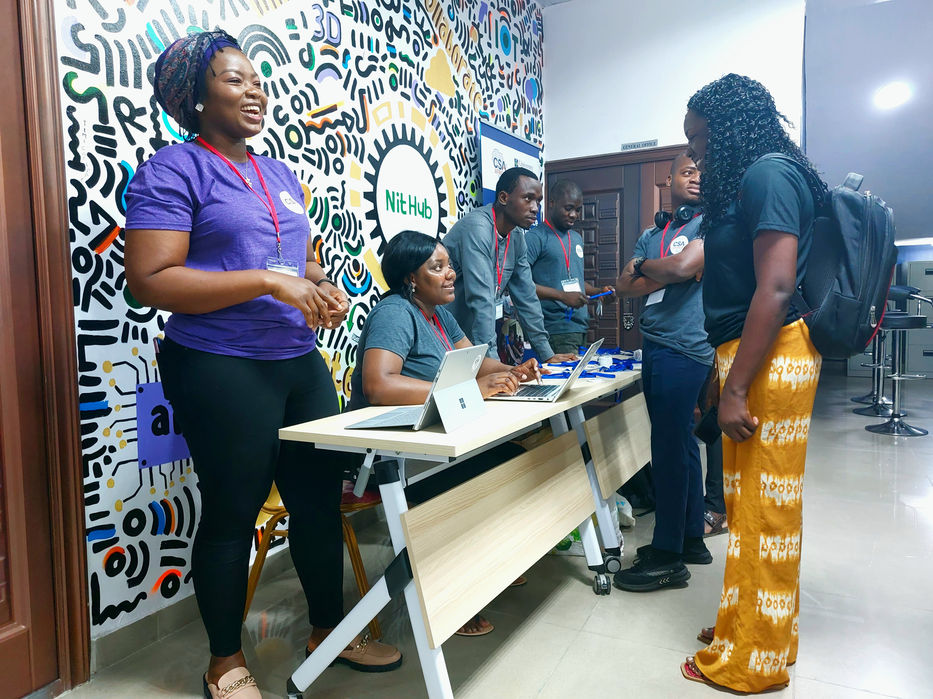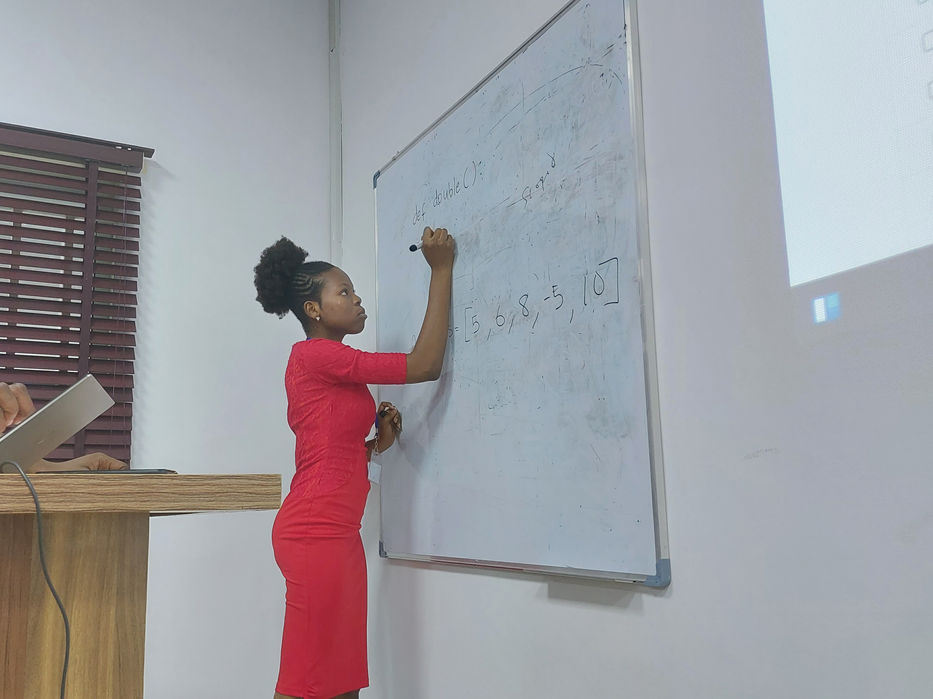
CSA Africa 2022
NitHub, University of Lagos, Nigeria
18 July - 03 August (3 weeks)
At a Glance
2,024
Applications Received
200
Participants Selected
49%
Female
4
Concurrent Learning Tracks
15
Tutors and Volunteers
126
Participants Accommodated
36
Local Travel Reimbursed
4
Childcare Support for Parents
Highlights

Three mothers attended with her children — made possible through our on ground childcare support.
Four concurrent learning tracks: Python fundamentals, Data Structures and Algorithms, Python for Internet of Things, and Introduction to Machine Learning.
Hosted "Breaking the Glass Ceiling" mini-conference featuring 4 Nigerian women in tech. This conference also included an anonymous barrier-sharing sessions revealing systemic challenges, as well as a kindness session where attendees wrote encouraging notes to one another.
Participants reported improved programming confidence and problem-solving skills.
Participants built several projects including medical bots, ML crop advisors, and IoT simulations


















































